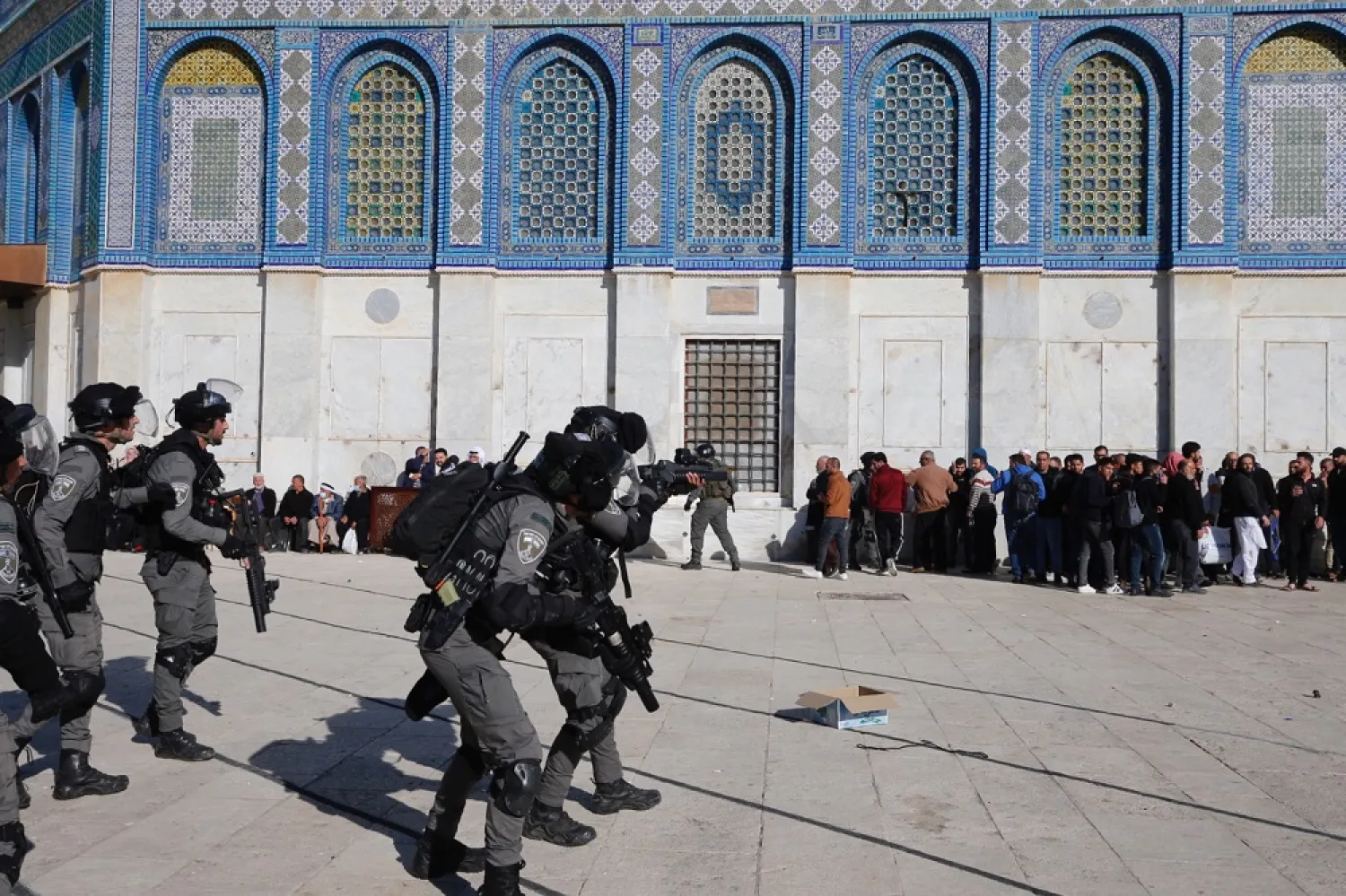One year after events in Jerusalem led to war in Gaza, clashes during the Muslim holy month of Ramadan are raising fears of renewed Israeli-Palestinian conflict, with leaders on both sides warning of possible escalation.
At least 152 Palestinians were wounded when Israeli riot police entered the Al-Aqsa mosque compound on Friday to disperse Palestinians who threw firecrackers and stones at them and towards a Jewish prayer area.
The Al-Aqsa compound sits on a plateau in East Jerusalem, which Israel captured in the 1967 Middle East war and later annexed. Known to Jews as Temple Mount, the area is the most sensitive in the generations-old conflict.
"Jerusalem is perhaps the number one issue that has the potential of triggering widescale violence," said Palestinian pollster Khalil Shikaki, director of the Palestinian Center for Policy and Survey Research. "We have seen that in the past."
Already strained by deadly attacks on Israelis by Palestinian assailants in the last two weeks and Israeli army killings of Palestinians in the West Bank, the atmosphere in the holy city has been heightened as Ramadan, Passover and Easter are all being marked this month.
Palestinian Prime Minister Mohammad Shtayyeh described the Israeli riot police actions at Al-Aqsa as a "brutal assault on worshipers during the holy month" and a dangerous omen.
At a rally in Gaza, a spokesman for the armed Islamist group Hamas, which rules the enclave, said that Israeli use of force would not go unanswered.
"We will draw the line again in defense of Jerusalem and we will launch a new era; weapons for weapons, and force will only be met by force and we will defend Jerusalem by all our might," Fawzi Barhoum said.
Last May, Palestinian militants fired rockets into Israel after Hamas demanded Israeli police withdraw from Al-Aqsa and the Jerusalem neighborhood of Sheikh Jarrah, where a court threat to dispossess Palestinian residents had led to protests and confrontation.
In the 11-day war that followed, 250 Palestinians in Gaza and 13 people in Israel were killed.
Israel's Prime Minister Naftali Bennett said authorities were working to restore calm in Jerusalem and across Israel, but were ready if the situation deteriorated.
"We are preparing for any scenario and the security forces are ready for any task," Bennett said in a statement.
Wave of Killings
Last week, a Palestinian from a refugee camp in the West Bank town of Jenin shot dead three Israelis and wounded several more at a Tel Aviv bar. The shooting was the latest in a string of Palestinian attacks in Israeli cities that killed 14 people.
Bennett called the attacks, which were the deadliest since 2016, "a new wave of terror".
The Israeli army has killed 40 Palestinians this year in a cycle which Dahlia Scheindlin, an Israeli public opinion expert and political analyst, said could be traced to early February when Israeli forces killed three Palestinian militants in Hebron.
The Palestinian Foreign Ministry described that killing as "an ugly field execution".
Alongside what it considers as security measures, such as mending breaches in the barrier which separates it from the West Bank and conducting mass arrests, Israel has also relatively eased Palestinian movement from the West Bank and Gaza into Israel and Jerusalem.
"There are no restrictions on the use of force," Israeli Foreign Minister Yair Lapid said on Thursday, echoing Bennett. He added that Israel would allow Palestinians who "maintain the quiet" to work and celebrate Ramadan without disruptions.
Until Friday's clashes at Al-Aqsa, those relief measures had appeared to ease some Palestinian frustrations, Shikaki said.
However, the pent-up anger and grievances over Israel´s 55-year military occupation of territories it captured in the 1967 war, and where Palestinians seek to establish a state, outweigh the current concessions, he added.
In the West Bank and East Jerusalem, 2021 marked the highest rate of Palestinian home demolitions since 2016, according to the Israeli human rights group B'Tselem.
In the last five years, Israel has granted just 33 building permits to Palestinians and over 16,500 building permits to Jewish settlers in the 60% of the West Bank it directly controls, according to Itay Epshtain, a humanitarian law and policy consultant, citing data disclosed by Israel's Defense Ministry.
"The whole structure that is in place, of the occupation, is violent," said Diana Buttu, a former legal advisor to the Palestine Liberation Organization. "It's been decades of this, decades of daily violence, and it gets to a point where eventually it just boomerangs back onto Israel."









